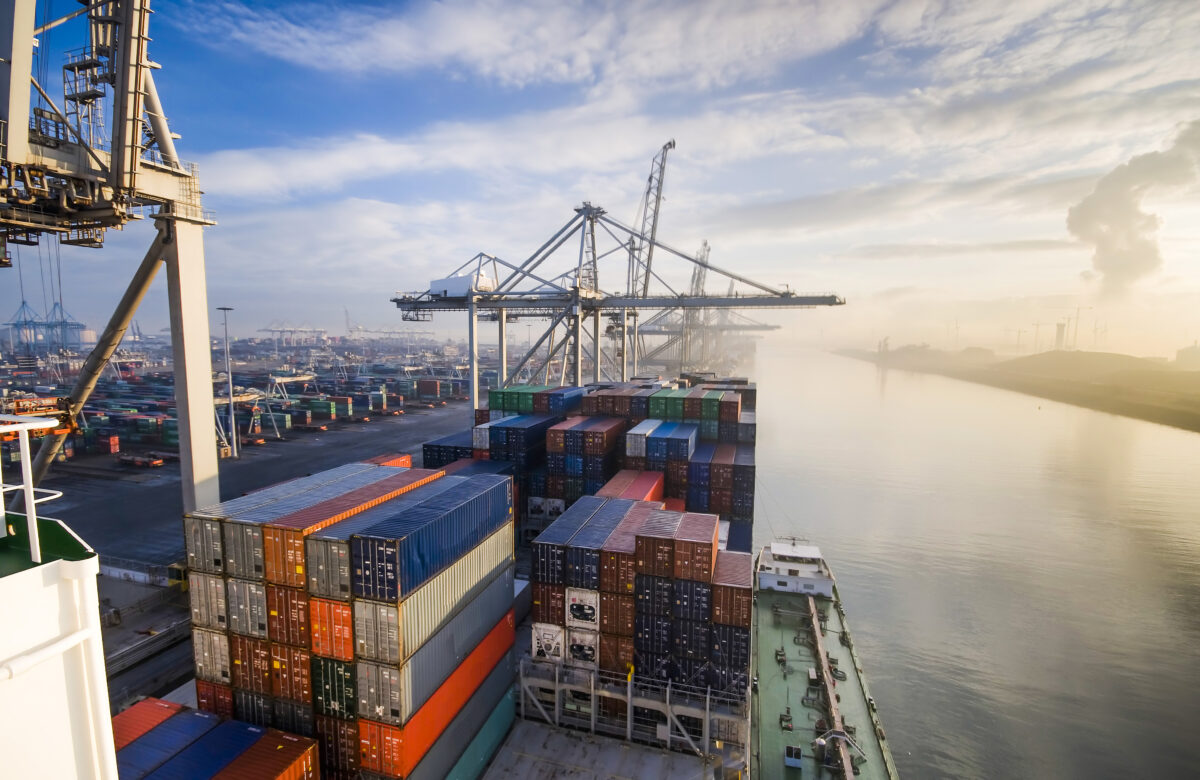O&W Attorneys at Law were at the event “Customs meets Science – Export Control and Technology Transfer” in Hamburg on 04.10.2018.
This customs event in cooperation with the Hamburg Chamber of Commerce deals with the increasingly important question of how to deal with technology transfer in the context of export control. Customs deliberately wants to inform research institutes and universities about customs opportunities and risks.
The general customs directorate responsible for this area, Directorate VI from Nuremberg, was in charge of the event, which set up the event with the Chamber of Commerce because it saw a need for clarification in the area of software in the economy, while the Chamber of Commerce had so far concentrated on the movement of goods, but not on immaterial goods.
Lectures on technology transfer and export control
Fortunately, presentations were given by numerous representatives from the authorities involved, in particular by representatives of the Directorate General of Customs and BAFA.
In the welcoming address by Jürgen Hartlich, President of the Directorate General of Customs, he asked “what should customs and science have to do with each other? He noted that science does not stop at borders and that once borders are crossed, customs is responsible. With reference to the Brexit, this topic will soon even become relevant within Europe. The customs authorities wanted to act proactively for the economy as a partner in order to avoid mistakes in the company and not to remedy them later.
Import of scientific equipment
Then Marko Uhl, from the Directorate General in Hamburg, gave a presentation on how goods used in the scientific field are handled. In this respect, it was first described how the import of scientific goods takes place. He admitted that for technical products it could be difficult to determine the correct customs tariff number. However, he made it clear that it is the importer’s responsibility to find the correct tariff number and that incorrect tariffs can always be blamed. He strongly advised against blindly relying on the tariff numbers mentioned by the supplier, focusing in particular on the existence of tax exemptions for scientific goods, as the import of goods for research purposes is politically favoured. This includes scientific equipment and spare parts and accessories. However, Mr. Uhl pointed out that there is considerable potential for savings for research institutions, even if import turnover tax and excise duty cannot be saved. In the end, Mr. Uhl gave best practices for the import of scientific goods. Further discussion focused on how scientific samples could be imported and exported without customs duties.
Knowledge transfer in the field of science
Afterwards Mrs. Angelika Lorenz, also from the General Customs Directorate, explained the background of the international transfer of goods, technology and knowledge. She emphasized that science has gathered an enormous amount of knowledge and that even this knowledge could cause serious damage abroad in the wrong hands, just think of nuclear physics. Ms Lorenz made it clear at the outset that foreign trade was free in principle and that exceptions and restrictions should therefore be interpreted strictly. It then presented the legal basis for export control, the national export list, the Dual-use Ordinance and the War Weapons Control Act. For the question if technology is covered, it was clarified that this is only the case if the essential functions of the software are covered by the listings. Even if the technology is a key technology for listed goods, there will be a technology transfer. Mrs. Lorenz remarked that the form of the transfer is possible in various constellations, even a simple e-mail can suffice. However, she also made it clear that findings from basic scientific research can be transferred without restrictions, although it is extremely unclear where the limit lies. Mr. Hartlich made it clear that if you turn to customs, you would be better advised in case of doubt than to pass on research results directly. Scientific staff critically noted that this makes cross-border activities considerably more difficult.
Ms Lorenz commented that Brexit may require an export licence because it will then be an export. However, it expected that many cases would be dealt with by means of general authorisations.
BAFA approvals for science
This lecture was supplemented by Mrs. Klöhn from BAFA, who presented her point of view on the non-representational technology transfer against the background of the current approval procedures at BAFA. She noted that BAFA is currently preventing exports in the case of violations of threatening human rights violations. It made it clear that, in the field of science, the constitutionally guaranteed freedom of science would not lead to exports being unrestricted. Even in the case of publicly funded research contracts, this does not lead to an exemption for exports by the institutions. In this respect, even a simple e-mail from a researcher can represent a technology transfer requiring approval. She admitted that the concept of technology covered by export control law is very broad and always needs to be assessed on a case-by-case basis. In any event, technical assistance may be subject to an authorisation requirement. She pointed out that in the field of technical assistance (e.g. guest scientists), foreigners are also considered to be persons who are resident in Germany for a limited period only.
For the practical application, the tip was given that all documents should be submitted in full so that the application can be processed quickly by BAFA. However, a leaflet on the optimised application process of BAFA is currently planned.
The event was rounded off with lectures on the creation of an export control system and the protection of trademark rights by customs.
To sum up, the issue of export control and technology transfer, as well as technical provision for every research institute and university, is an issue that should not be neglected. Even if the focus should be on research and export control issues are rather unpopular in companies and research institutes, this issue should be on the agenda for creating proper export compliance in research institutes. It is not the individual scientist who should take care of it, but it is one of the tasks of the management to take care of it with its own department.
Dieser Artikel wurde am 13. December 2018 erstellt. Die fachliche Zweitprüfung hat Rechtsanwalt Dr. Tristan Wegner durchgeführt.

